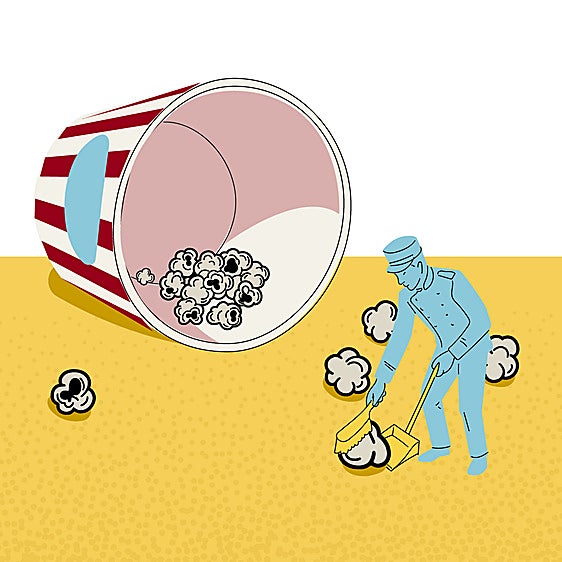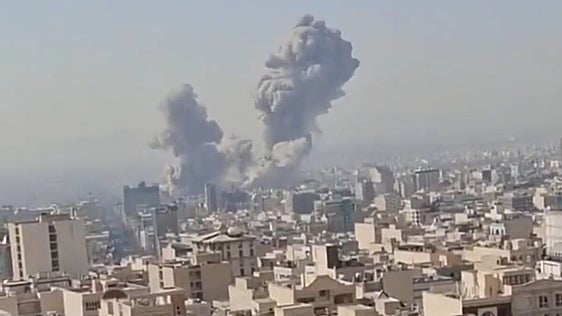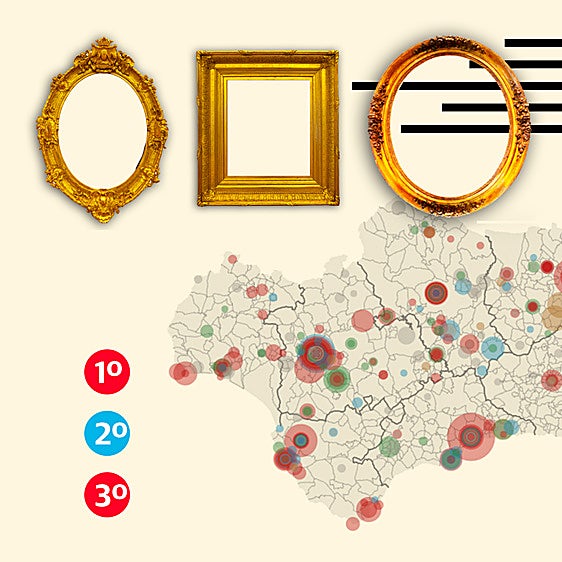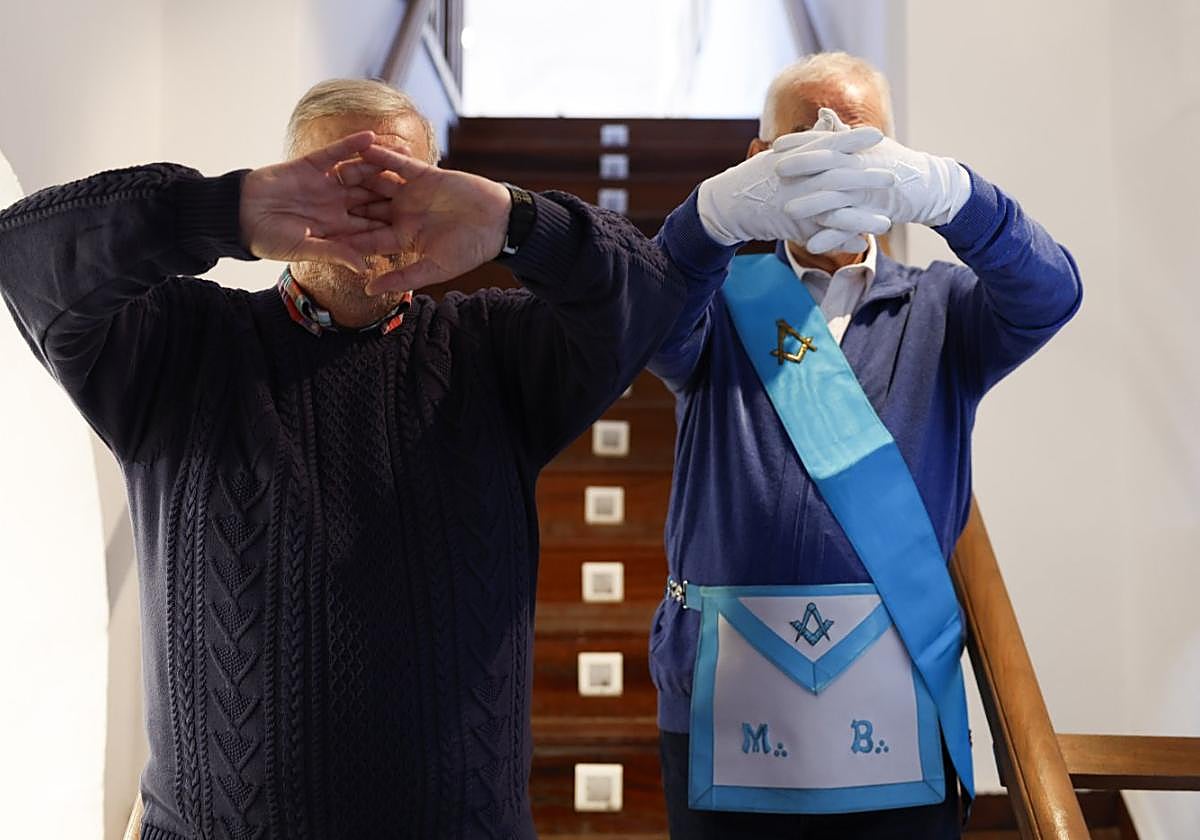Delving into what goes on behind closed doors, Freemasons in Malaga
SUR speaks with 'Lugalo' and 'Diderot', the code names of two members of the Pitágoras lodge in the city
Cristina Vallejo
Malaga
Friday, 1 March 2024, 15:39
“We use symbolic names to protect our identities,” is Lugalo and Diderot’s justification for not revealing their real names. They are Freemasons, members of the Malaga Pythagoras lodge, which has celebrated its tenth anniversary. Recently they have received news from Madrid that threatening graffiti is appearing on the doors of masonic temples attributed to the hands of the extreme right. Throughout history, they remind us, Freemasonry and its members have been greatly persecuted, especially in Spain, they claim, namely during the absolutist reign of Ferdinand VII and Franco's dictatorship. But the Freemasons have survived all such persecution and the bad press associating them with diabolical cults, strange rituals or various conspiracies. They define themselves only as “free people of good morals”.
Meeting up with SUR, they explain that their membership is growing. Evidence? The founding of their lodge in Malaga city ten years ago is the result of this increase in their critical mass, first in Andalucía and then specifically in Malaga province.
Both Lugalo and Diderot are past retirement age. Throughout their working lives they were dedicated to cultural management in business and social services. It was curiosity that later piqued their interest as well as a restless mind that led them to enter Freemasonry. Moreover, they observed a “different mood” to its members once they met them. So all this happened over different stages in their lives: in adolescence and as young men they learned about what Freemasonry stood for; when older, set up for life and families raised, they accepted the invitation to join the movement after making contact via social media, mostly through chat rooms: “Freemasonry is in the 21st century,” they say.
French Freemasonry and obediences
At the point when they wanted to join a lodge, Freemasonry in Malaga and across Andalucía existed only in its English version - put simply, conservative, monarchist and aristocratic - the result of most Freemasons at that time coming from that geographical area. They, on the other hand, identified more with the obediences (masonic term) in France, in particular that of the Grand Orient of France (secular, republican and democratic), which has a federal structure made up of 1,300 lodges and more than 50,000 members around the world). They looked for a temple (the physical place for lodge meetings, but often used as a synonym for a lodge) of the French persuasion and joined one in Alicante.
As the membership grew with Freemasons from Andalucía, including Master Masons, they set themselves the goal of founding a lodge closer to home. The first phase in this process is the creation of triangles (the minimum grouping of Freemasons, made up of a Master Mason and three brothers), then to ‘raise the pillars and light the lesser lights', Masonic terms that refer to the values to be enshrined in the founding of a lodge. “It’s only natural that, with growth, lodges are set up, that is why this one in Malaga is ten years old; we were previously part of one lodge (Tartessos) in Seville,” they explain. Right now Pythagoras lodge has around thirty members of all ages, of which five are women. They come from all kinds of professions and can hold any ideology, but one thing they have in common, as Lugano and Diderot put it, they are “restless people”.
How to become a Freemason?
When someone begins looking into Freemasonry or gets to know a Freemason, curiosity can then turn into interest and they can be invited to enter a lodge, as happened for these two. What is the entry process like? It's not easy at all. First of all, they say, you have to read a lot: both Masonic and anti-Masonic literature. Additional essential reading, though, is on Pythagoras' website, where you can see the 'planchas', which are their Masonic articles on matters for debate at lodge meetings, often shrouded in architectural terminology (laying foundations, building bridges…). They suggest that such value statements are not unlike the wording typically applied to parliamentary laws approved by MPs, as happened with the recent law on euthanasia. It is about finding out if Freemasonry is right for you, a real connection: “We are not interested in those who come to browse, who join and then leave soon after. You have to know what you're getting into; you have to be certain about this, and possess a certain level of maturity,” they warn.
“We are not interested in those who come to browse, who join and then leave soon after. You have to know what you're getting into; you have to be certain about this, and possess a certain level of maturity”
Through their website you can petition to join the lodge by filling out a form with all your personal details and life history, plus an explanation of what motivates you to consider Freemasonry. From there, the application process has commenced. One of the most important milestones is the moment when three Master Masons conduct three interviews with the candidate following the principle set by an important Masonic symbol, the Plumb, which comes from the plumb line used in construction to test straightness. These interviews deal with personal, philosophical and social matters. The lodge wants to know about the applicant in depth and, above all, to confirm whether they meet the profile of someone with free thought and good morals; if they are, in short, an exemplary citizen.
As for matters of ideology, it is not necessary to share the main ideas that inspire the lodge or its republican spirit: “If you disagree with me, far from offending me, you enrich me,” they state. In fact, they boast of having “no limits to our thinking” and “not tolerating obstacles”: “Freedom of thought must always be at the forefront”.
Alongside the interviews, the lodge in question also consults with the Grand Orient of France to see if the applicant who aspires to be a Mason has been rejected by any other Masonic obedience or if he has been expelled for good reason (committing a crime or similar). After all these checks, the blindfolded candidate will undergo the solemn presentation to the lodge, in which any of its members can ask him anything and, immediately afterwards, his candidacy is put to a vote with a secret ballot. Each lodge member drops either a black or white ball into their respective boxes (blackballing means rejection). The candidate will need an absolute majority to join.
Freemasonry is quite the opposite to what happens in a sect, as indicated by Lugano and Diderot: although it is quite difficult to join, it is easy to leave. One can leave by one's own volition, although a Freemason can also be expelled (Masonic death in their terminology) if one is disrespectful, does not fulfil one’s duties, doesn't pay the monthly membership fee (40 euros), doesn't attend meetings...
A rite of passage: the drama of the initiation
Once the layman's application to the lodge is accepted, the initiation ceremony or rite of passage takes place.
Our two Freemasons describe the initiation ceremony as “a sociodrama” with several stages and tests. For example, the earth test, which takes the ‘Intended Initiate’ to the ‘Chamber of Reflection’, a small room with blackened walls, with some pictures on the wall and thought-provoking phrases that encourage him to abandon the process (“if you come here out of curiosity, then leave”, for example) and with symbolic elements of the most archaic Masonic Rites, such as the rooster, the hourglass, a small loaf of bread, a glass of water, and three jars with mercury, sulphur and soil. There the initiate is locked up where he will have to fill out a document in which he will explain his thinking about what he considers to be his obligations towards his country, his family and even towards himself, and to reveal, when it is his time to die, what would be his last will and testament.
Before becoming a Mason the initiate will also have to go through the tests of the remaining elements of fire, air and water. The whole process requires you to progress from one stage to the next. Freemasonry uses progression everywhere, like the ranking system that takes them from being an Apprentice, from there to Journeyman or Fellowcraft and, finally, to Master Mason. They don't give many more details, but they stress that everything is highly symbolic and staged, even quite theatrical.
They do explain that the person in question is blindfolded, with their right leg rolled up, barefoot on one foot, with one shoulder exposed and with a rope or chain binding hands and neck. The initiate (aka the profane) is almost crawling into the ceremony. ”Once they have entered in chains, the first thing the Worshipful Master or First Warden does is take hold of the bindings, remove them and throw them away, reciting the following words: 'These are all the things that are binding you, they are enslaving you; from now on, begone'. The Worshipful Master then says to the new Mason, still kneeling: 'You will never kneel before anyone. A Mason lives standing and dies standing.’”. Therefore, it has a meaning to enter the temple in chains, because in life we are full of things that tie us down. There is also a reason why the initiate had to empty all pockets before entering: you have to leave behind the 'profane metals' and all that comes from outside.
Monthly lodge meetings
Besides initiation ceremonies, there are monthly lodge meetings where members present and debate on different issues. Some current topics include abstention in elections and political disaffection, the legitimacy of civil disobedience, or water as a common right. These are topics they believe to be of great relevance: “We follow the French Rite, we are very active, prepared to speculate, always scientific in our attitude, accepting that everything is connected,” they say. Still, in these meetings they wear the expected regalia of all Freemasons: the apron and the white gloves.
Malaga, these Freemasons explain, has been, and still is, favourable territory for Freemasonry due to its liberal traditions. For this reason they point out that the Pythagoras lodge is not the only lodge in the city or the province. There are more lodges and, in the last two decades, they have grown in number.
We are reminded that Freemasons do not discuss partisan issues, but they tell us that in their ranks there can be partisan supporters from across the political spectrum and, in some lodges, there may also be a priest or two. Freemasonry in general and their lodge draw a clear line between their movement and religion, politics or any other association. They argue that the objective of a political party is to achieve power; that of a religion, to impose a dogma; and that of an association, to work for some cultural or social purpose, whatever that might be. That said, they want their thinking to transcend the confines of the lodge. Much of their outreach work, once approved, goes overseas.
“We work ’undercover‘ in the protected environment of the lodge because there is more free thinking and free expression when it’s guaranteed that nothing will reach the powers that be.”
However, their debates are kept secret. What happens in the lodge stays in the lodge. The extent of this secrecy is such that, if a Mason misses one of the meetings, they will never know what happened in that session. “It is forbidden to comment on anything”. They work “undercover”, as they call it, in the protected environment of the lodge because there is more free thinking and free expression when it’s guaranteed that nothing will reach the powers that be”. That is the Freemasons’ tradition that they continue to respect. “I can bare myself intellectually in my lodge in front of my brothers knowing that, even if I say something crazy, they will respect me, they will correct me, and nothing is leaked, something that does not happen in 'profane life' outside”.
Secrecy also comes in another format: a Freemason cannot reveal the Masonic identity of another living Freemason, although they can declare themselves to be one, if they so wish.
Freemasonry in the 21st century
So, if Freemasonry is neither a political party, nor a religion, nor an association, what role can it have in the 21st century? “The one it has always had”, they answer: “The lodge is like a still used in alchemy: many ideas enter and are distilled and purified and an elixir is the result. Freemasonry has such a role for the human being: it has the capacity to help you individually as a person to progress and improve, but then also, together with the rest of the Freemasons, its purpose is the improvement of humanity, bringing fairness and light to all”.
So, what image do you think the Freemasons transmit in these times, with the dictatorship now fifty years behind us? “You can just as easily find people who think that Freemasons are interesting people with whom to talk and debate as other folk who believe that Freemasons belong in the past”.
SUR’s request to attend a lodge meeting at Pythagoras was turned down due to the secret nature of such meetings. However, it was explained that there is an annual open house (‘open white’) meeting for anyone curious to learn more about Freemasonry. A 'closed white meeting' can also take place, which consists of inviting a layman to give a lecture or speak on a topic for the Masonic lodge.



